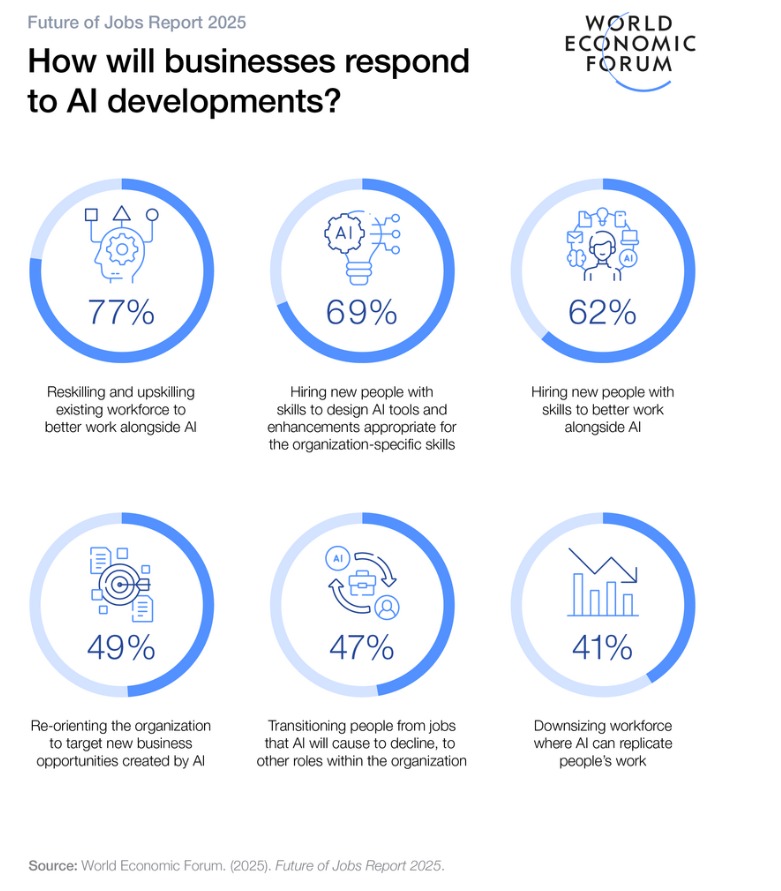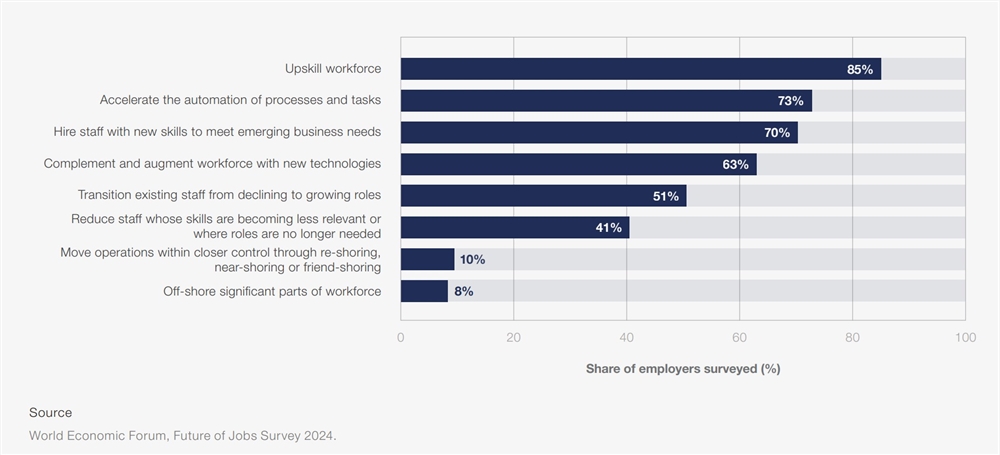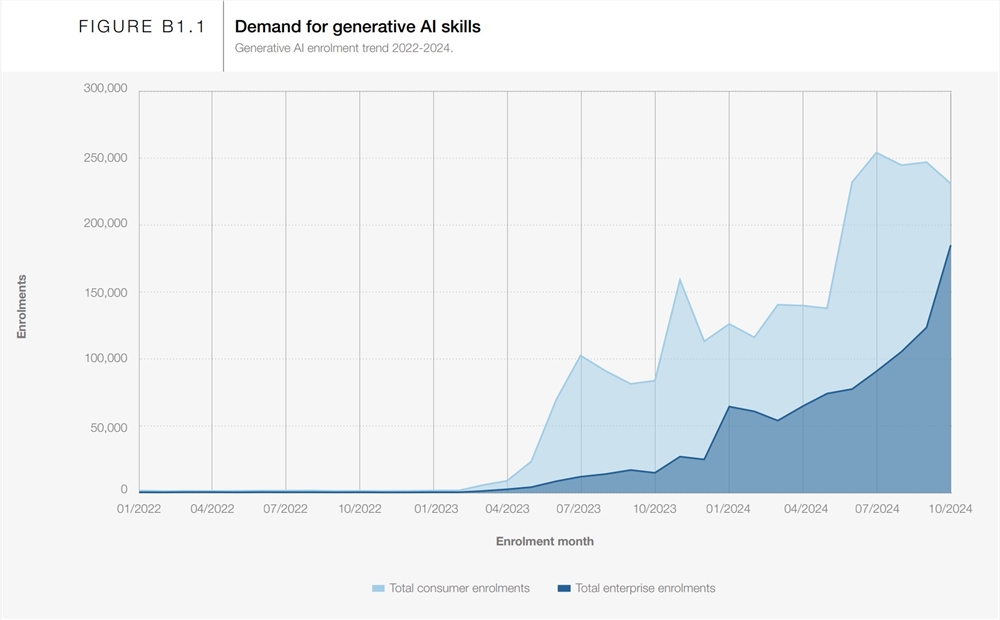The "Future of Jobs 2025 Report" released by the World Economic Forum shows that although artificial intelligence (AI) may replace some jobs, global companies prefer to retrain existing employees rather than layoffs. The report surveyed 1,000 global companies, and the data reveals how companies are responding to the AI wave, as well as differences in how countries by region and income level are coping with the impact of AI on the labor market. The report contains a large number of chart data, which intuitively shows how companies adjust their human resources strategies in the AI era and predicts the future employment situation.
The "Future of Jobs 2025 Report" recently released by the World Economic Forum reveals an interesting contradiction: Although artificial intelligence (AI) is regarded as a technology that will replace some jobs, global companies are more inclined to retrain existing workers. employees, not layoffs.
The report surveyed 1,000 companies around the world and showed that about 41% of companies plan to reduce positions that AI can handle, while 77% of companies are more focused on training existing employees in AI skills. The trend highlights the desire of many companies to retrain to adapt to the application of artificial intelligence, rather than outright layoffs. However, it’s worth noting that these numbers can change quickly as AI technology develops.

77% of companies plan to retrain existing employees to adapt to the adoption of AI, while only 41% plan to reduce headcount due to AI automation. | Picture:WEF
From a regional perspective, the emphasis on skills upgrading cuts across countries at different income levels. In high-income countries, 87% of companies prioritize training, compared with 84% in upper-middle-income countries and 82% in lower-middle-income countries. In addition, process automation remains an important strategy for enterprise transformation, although its popularity has declined - 73% of companies plan to implement automation, down from 80% in 2023. High-income countries are particularly active in this area, with 77% of companies planning to automate, compared with just 57% in low- and middle-income countries.

Upskilling and process automation dominate employers’ transformation strategies. |Image:WEF
Although the spread of artificial intelligence will affect existing jobs, the World Economic Forum predicts that technological progress and market changes will create approximately 170 million new jobs in 2030, accounting for 14% of current global employment. It is expected that 8% of existing jobs will disappear by 2030, but overall 78 million new jobs will be created.
This transformation requires massive retraining. The report noted that 70% of companies said they wanted to recruit employees with future skills, while 51% planned to move employees from layoffs to growth departments. The World Economic Forum also predicts that by 2030, 59% of the global workforce will require additional training to adapt to changing work requirements.

Starting in 2023, the demand for AI skills will grow exponentially. Businesses, in particular, will invest more in training, as can be seen from the sharp increase in business registrations starting in mid-2024. | Picture: WEF
However, researchers warn that artificial intelligence automation still has limitations, especially in jobs that require human emotion, judgment or physical skills, where artificial intelligence will be difficult to replace humans. Therefore, the report recommends that companies should not rely too much on automation, but should adopt a balanced strategy to enhance human capabilities while promoting the development of AI to ensure that the importance of human workers in economic value creation is not diminished.
Overall, AI technology is redefining the landscape of jobs. Companies not only face challenges brought about by technological innovation, but also need continuous training and transformation to cope with future labor demands.
All in all, the report emphasizes the importance of employee retraining in the AI era, and the need for companies to adopt a balanced strategy, while using AI technology to improve efficiency, while focusing on the cultivation and development of human capital to adapt to future job market changes. Enterprises should actively embrace the opportunities brought by AI and provide employees with the necessary support to ensure a smooth transition amid technological changes.